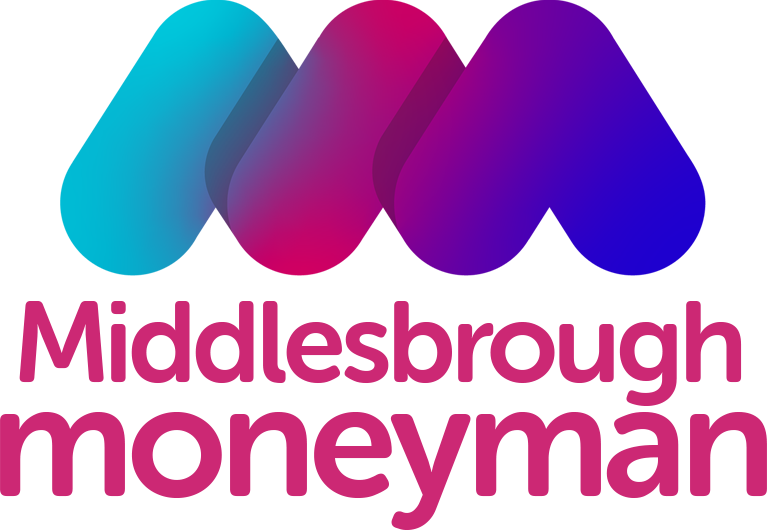A common query that frequently comes our way, especially from first time buyers in Middlesbrough and home movers in Middlesbrough, revolves around the intriguing question, “How Much Can I Borrow?”
In this context, we’ll delve into this, as well as the world of affordability assessments, shedding light on how they’ve evolved in the post-2014 era.
How Much Can I Borrow?
The amount you can borrow for a mortgage in Middlesbrough is determined by a complex interplay of factors. Lenders conduct affordability assessments to gauge your financial capacity, which involves examining your income, regular expenditures, outstanding debts, and credit history.
These assessments aim to ensure that your mortgage repayments are manageable within your budget. Additionally, lenders adhere to specific lending criteria and often apply a maximum cap on the amount they are willing to lend to mitigate risk.
Therefore, the exact figure you can borrow varies from one lender to another and is highly dependent on your unique financial circumstances.
It’s advisable to seek guidance from a mortgage advisor in Middlesbrough who can provide tailored advice based on your individual situation and help in finding a suitable lender.
How Do Lenders Measure How Much I Can Borrow in Middlesbrough?
Historic Rules
In the bygone era of credit assessment, the fate of your mortgage application rested in the hands of your local Building Society Manager, who meticulously analysed every detail. As the 1990s dawned, lenders embarked on a journey towards more standardised income evaluations, striving for consistency.
To prevent overborrowing, lending “caps” were instituted, typically restricting customers to borrowing no more than three or four times their annual earnings. However, as the 2000s loomed, these income multipliers took a seemingly more lenient turn.
Some lenders, in a surprising twist, allowed customers to “self-certify” their incomes, sidestepping the need for background checks like payslips. But, as fate would have it, the jubilant days of carefree lending were short-lived.
The credit crunch of the 2000s struck, and with it, the reckoning. In the aftermath of the financial crisis, lenders, stung by past generosity, swung the pendulum in the opposite direction. Obtaining a mortgage suddenly became a formidable challenge for many.
Nowadays Approach
In the wake of the market’s recovery post-credit crunch, 2014 heralded a significant regulatory milestone known as the Mortgage Market Review (MMR).
This ushered in a new era for lenders, bidding farewell to the antiquated income multipliers that, prior to 2014, paid scant attention to a household’s actual expenses. In those days, two applicants with similar earnings could secure nearly identical mortgages, regardless of their individual monthly outflows.
However, winds of change swept in with the MMR, ushering in a more meticulous approach to assessing affordability.
Lenders now took a closer, more forensic look at how mortgage applicants managed their finances on a month-to-month basis. While a lending “cap” still prevails, with most lenders reluctant to exceed 4.75 times an applicant’s annual income, your spending habits now come under scrutiny.
For instance, if you shoulder hefty childcare expenses, grapple with multiple credit commitments, or carry a burdensome student loan, your lending offer may differ markedly from a colleague with a less encumbered financial profile.
One of the intriguing aspects of this revamped lending landscape is the wide chasm in lending policies from one lender to another. Some appear to penalise lower earners, possibly not aligning with that particular demographic.
Meanwhile, certain lenders treat pension contributions as a fixed financial commitment, often resulting in a more conservative lending stance for applicants with substantial pension deductions, such as public sector workers. This underscores the sheer diversity and nuance in today’s mortgage lending landscape.
Mortgage Market Review 2014
As the property market rebounded, so did the regulations governing mortgage lending. The Mortgage Market Review emerged as a pivotal moment, ushering in a fresh set of guidelines for lenders to follow.
This transformation marked the end of the conventional income multiplier approach and ushered in a more advanced era of affordability assessment.
The new wave of affordability calculators delved deeper into the intricacies of an applicant’s financial profile, going beyond the surface figures to review spending habits and net disposable income. This shift brought about a more comprehensive evaluation of mortgage applicants’ financial health.
Bank statements took on a heightened significance, undergoing closer examination to ensure the responsible and sustainable granting of mortgages. The days of imprudent lending practices were firmly behind us.
Instead, these revamped assessments considered important factors such as childcare costs, adding a layer of prudence to the lending process.
Variances in Borrowing Capacity
Lenders engage in fierce competition not only in terms of pricing but also in defining their lending criteria. This approach prevents a detrimental race to the bottom and ensures that they focus on specific niches within the market.
Consequently, the landscape is filled with striking variations in maximum borrowing capacity from one lender to another. It’s key to recognise that different lenders have distinct customers in mind. Thus, a rejection from one lender doesn’t signal the end of your mortgage journey.
Each lender operates within a unique framework, considering various factors that can work to your advantage. Some lenders, for instance, are open to considering state benefits such as tax credits when assessing your mortgage application.
Others may exhibit greater flexibility in accommodating self-employed individuals. Additionally, extending the mortgage term to its maximum allowable length can also enhance the amount a lender is willing to offer.
As the 2000s progressed, lenders became increasingly generous in their lending practices, with some even offering self-certified mortgages that bypassed rigorous income verification checks. However, this lax approach eventually led to a market crash.
The aftermath of the financial crisis, particularly during the years spanning 2008 to 2010, witnessed a challenging environment for aspiring homeowners. Lenders responded by adopting a cautious, over-corrected approach that limited lending opportunities.
The Benefits of Using a Mortgage Broker in Middlesbrough
The mortgage landscape is indeed a varied one, and the right strategy depends on your unique circumstances. If your goal is to maximise your borrowing capacity, particularly to secure that dream home, having a dedicated mortgage broker in Middlesbrough in your corner is invaluable.
A proficient mortgage broker in Middlesbrough can delve into the intricacies of the market on your behalf. They’ll explore the lending landscape to determine if there are willing lenders who can accommodate the specific amount you require to make your property purchase a reality.
However, securing a mortgage is not just about the numbers. It’s also about ensuring that your financial commitments align comfortably with your budget. This is where a seasoned mortgage advisor in Middlesbrough comes into play.
Collaborating with a mortgage advisor in Middlesbrough, you can thoroughly assess your financial situation.
Together, you’ll gauge whether the proposed mortgage repayments fit seamlessly into your financial framework, providing you with peace of mind and financial stability as you embark on your homeownership journey.
Date Last Edited: September 14, 2023















